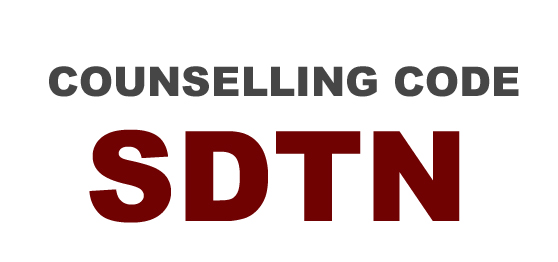
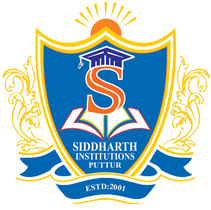

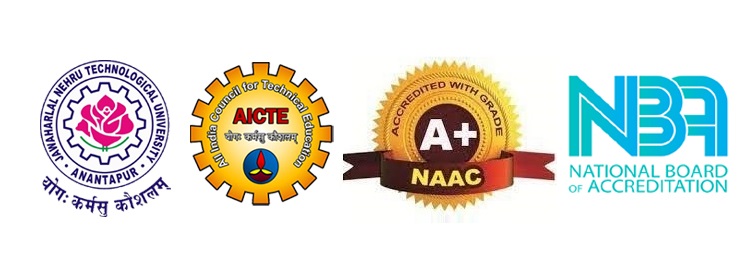








The Department of Computer Science and Engineering (CSE) was established in the year 2001 with a vision to provide a place for Innovation, Scientific Discovery and New Technology, to evolve as a Centre of Excellence in Research and Learning, Integrating Computer and Information Sciences with Natural Sciences and Basic Engineering.
The Department was started with UG programme B.Tech (Computer Science & Engineering) with an Initial intake of 60 . By the explorative growth of Computer Science and by Globalization of Economies, the rise in demand for computing professionals in all disciplines was imperative. So the department increased the intake and developed new courses with industry-relevant curriculum to cater the imminent need.
Courses offered by the department are
| COURSE | INTAKE | YEAR STARTED |
|---|---|---|
| B.Tech - Computer Science and Engineering | 420 | 2001 |
| B.Tech - CSE (Artificial Intelligence and Machine Learning ) | 360 | 2020 |
| B.Tech - CSE (Artificial Intelligence and Data Science) | 300 | 2021 |
| B.Tech- CSE with Specialization in Cloud Computing | 120 | 2021 |
| B.Tech- CSE (Internet of Things and Cyber security with Blockchain Technology) | 60 | 2020 |
| B.Tech- CSE (Artificial Intelligence) | 60 | 2022 |
| B.Tech- CSE (with Spl in IoT & Automation) | 60 | 2024 |
| M.Tech (Computer Science and Engineering) | 18 | 2009 |
| DIPLOMA (Computer Science and Engineering - DCME) | 60 | 2023 |
The Department is constantly updating the curriculum of the students every academic year, new courses are framed in consultation with experts in industry and academia and imbibed into the curriculum to prepare the students as industry-ready professionals
The Department is committed towards upgrading the faculty and students for current and emerging trends in technology. Events such as Workshops, Seminars, Faculty Development Programmes and Conferences are conducted by the Department every academic year to pace up with the updating Technologies.
The Department is collaborated with IIT Tirupati for mentorship programme, and faculty are working together in Framing curriculum, Research projects, and other outreach programmes.
The Department is having excellent infrastructure with all class rooms enabled with ICT facilities ,State of art Laboratories, Seminar hall with 500 seating capacity etc. The Department has signed MoU’s with various industry to bridge the gap between academia and industry and has established Centers for excellence. The state of the art Laboratories help the students in learning and completing the advanced certification courses.
The Department is accredited by the National Board of Accreditation(NBA), New Delhi in 2013, re-accredited in 2016 and 2019 for three years.
The Alumni of the department are placed in top positions in both academia and industry and constantly pay a visit to the department for motivating the students in the skills required.
To impart quality education and research in Computer Science and Engineering for producing technically competent and ethically strong IT professionals with contemporary knowledge.
M1:
Achieving academic excellence in computer science through effective pedagogy, modern curriculum
and state-of-art computing facilities.
M2:
Encouraging innovative research in Computer Science and Engineering by collaborating with
Industry and Premier Institutions to serve the nation.
M3:
Empowering the students by inculcating professional behavior, strong ethical values and
leadership abilities.
The Program Educational Objectives of the Computer Science & Engineering are:
PEO1: To provide software solutions for arising problems in diverse areas with strong knowledge in innovative technologies of Computer ScienceThe following are the program outcomes of Engineering Graduates:
PO1: Engineering knowledge: Apply the knowledge of mathematics, science, engineering fundamentals, and an engineering specialization to the solution of complex engineering problems.The following are the Program Specific Outcomes of Engineering Graduate:
PSO1: Analysis & Design: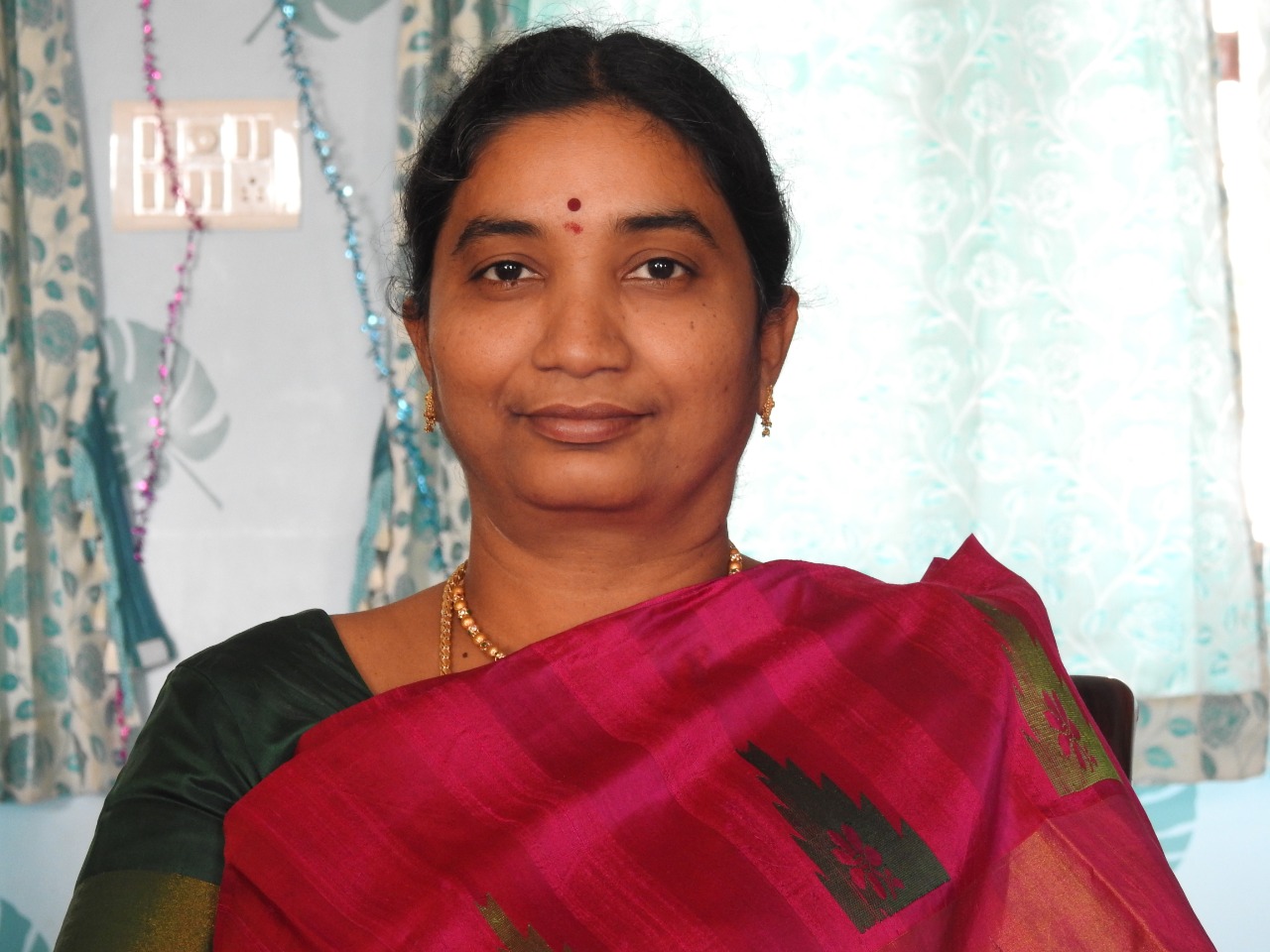
Dr.R.M.Mallika working as a Professor in the Department of CSE , Siddhartha Institute of Engineering and Technology, Puttur, Tirupati District, Andhra Pradesh.
R.M.Mallika has received Ph.D degree in the Department of Computer Science from Sri Padmavathi Mahila Visvavidyalayam , Tirupati, November, 2022., M.Tech Degree in Information Technology in Satyabama University, Chennai in 2009 , B.Tech in Computer Science and Engineering, JNTUH in 2001 respectively.
She is dedicated to teaching field from the last 20Yrs. She has guided 15 P.G. students and 90 U.G students. She has published 30 Research Papers (National , International Journals, Conferences). 3 patents, 2 book chapters, 1 Book are also published, Attended ATAL FDP’s TWO NPTEL/SWAYAM courses completed The areas of interest are Soft Computing , Machine Learning, Compiler Design, Formal Languages and Automata Theory. Having professional memberships like ISTE, IAENG, ACM.
| S.No | Member Name | Designation / Organization | Role of Bos | Category of Nomination |
|---|---|---|---|---|
| 1 | Dr. R.M.Mallika | Professor & HOD | Chairman | Head of the Department |
| 2 | Dr. M.Giri | Professor | Member | Faculty Members of each Specialization in the Department |
| 3 | Dr. P.M.S.S. Chandu | Professor | Member | |
| 4 | Dr. R. G. Kumar | Associate Professor | Member | |
| 5 | Dr. J.Sridhar | Associate Professor | Member | |
| 6 | Dr.A.Suresh | Associate Professor | Member | |
| 7 | Dr.U.Humera Khanam | HOD & Professor, Department of CSE, S.V.University, Tirupati | Member | Subject Experts Nominated by the AC |
| 8 | Dr. C.Nagaraju | Professor, Department of CSE, Yogi Vemana University,Proddutur. | Member | |
| 9 | Dr.K.Madhavi | HOD & Assoc Professor, Department of CSE, JNTUA College of Engineering,Ananthapuramu. | Member | Subject Expert Nominated by VC |
| 10 | Mr. V.V.Dhanapal | Project Technical Lead, Hewlett Packard, Bangalore, Karnataka | Member | Representative from Industry |
| 11 | Mr.K.V.Raghavendra Sai | Team Lead, HTC Global Service, Hyderabad. | Member | Alumni (PG) Nominated by the Principal |
| S.No | Member Name | Designation / Organization | Area of Specialization |
|---|---|---|---|
| 1 | Dr .M .Giri | Professor | CSE |
| 2 | Dr. P.M.S.S. Chandu | Professor | Software Engineering |
| Academic Year | IV Year | III Year | II Year | |||
| ODD Sem | EVEN Sem | ODD Sem | EVEN Sem | ODD Sem | EVEN Sem | |
| 2024-25 | 92.14 | 87.74 | 73.94 | |||
| 2023-24 | 83.43 | 93.97 | 81.13 | 84.91 | 84.18 | 69.49 |
| 2022-23 | 82.10 | 91.36 | 70.41 | 71.01 | 70.19 | 78.88 |
| 2021-22 | 80.84 | 80.61 | 72.19 | 73.30 | ||
A good teacher can inspire hope, ignite the imagination, and instill a love of learning
| S.No | Name of the Faculty | Designation | Date of Joining | Qualification | Nature of Association | Profiles |
|---|---|---|---|---|---|---|
| 1 | Dr.R M Mallika | Professor & HoD | 22/06/2019 | M.Tech.,Ph.D | Regular | Profile |
| 2 | Dr.M.Giri | Professor | 13/07/2022 | M.Tech.,Ph.D. | Regular | Profile |
| 3 | Dr.Manivasagam.M.A | Professor | 11/07/2022 | M.E.,Ph.D. | Regular | Profile |
| 4 | Dr.Chandu P M S S | Professor | 18/05/2018 | M.E.,Ph.D. | Regular | Profile |
| 5 | Dr.D.Nagaraju | Associate Professor | 11/07/2022 | M.Tech.,Ph.D | Regular | Profile |
| 6 | Dr.R.G.Kumar | Associate Professor | 04/06/2012 | M.Tech.,Ph.D. | Regular | Profile |
| 7 | Dr.Sridhar.J | Associate Professor | 13/12/2021 | M.Tech.,Ph.D | Regular | Profile |
| 8 | Dr.Priyadarshini R | Associate Professor | 11/07/2022 | M.Tech.,Ph.D. | Regular | Profile |
| 9 | Dr.E.Murali | Associate Professor | 11/07/2022 | M.Tech.,Ph.D. | Regular | Profile |
| 10 | Dr.A Suresh | Associate Professor | 01/06/2015 | M.Tech.,Ph.D. | Regular | Profile |
| 11 | Babu N | Assistant Professor | 01/06/2018 | M.E. | Regular | Profile |
| 12 | Sarvesan.B | Assistant Professor | 11/07/2022 | M.E. | Regular | Profile |
| 13 | Sambasiva V | Assistant Professor | 05/06/2020 | M.Tech., | Regular | Profile |
| 14 | Pavan Kumar B | Assistant Professor | 09/01/2013 | M.Tech., | Regular | Profile |
| 15 | Indiravathi G | Assistant Professor | 15/06/2019 | M.Tech., | Regular | Profile |
| 16 | Ravi Kumar G | Assistant Professor | 11/07/2022 | M.Tech., | Regular | Profile |
| 17 | Varigonda Gopi | Assistant Professor | 11/07/2022 | M.Tech., | Regular | Profile |
| 18 | Kalthireddy Hemanth | Assistant Professor | 01/07/2024 | M.Tech., | Regular | Profile |
| 19 | Sirisha K | Assistant Professor | 28/03/2022 | M.Tech., | Regular | Profile |
| 20 | R Surekha | Assistant Professor | 17/08/2021 | M.Tech., | Regular | Profile |
| 21 | S Mabuni | Assistant Professor | 03/06/2022 | M.Tech., | Regular | Profile |
| 22 | Mekala Rani T M S | Assistant Professor | 01/07/2024 | M.E. | Regular | Profile |
| 23 | Rekha M | Assistant Professor | 13/07/2022 | M.Tech. | Regular | Profile |
| 24 | Sriram Jyoshna | Assistant Professor | 11/07/2022 | M.Tech., | Regular | Profile |
| 25 | Mohanvalli K G | Assistant Professor | 11/07/2022 | M.Tech. | Regular | Profile |
| 26 | Hemanadhan D S | Assistant Professor | 01/07/2024 | M.Tech., | Regular | Profile |
| 27 | Jayanthi P | Assistant Professor | 17/08/2020 | M.Tech., | Regular | Profile |
| 28 | Doddala Radhika | Assistant Professor | 01/07/2024 | M.Tech., | Regular | Profile |
| 29 | Manduru Bhavana | Assistant Professor | 03/06/2023 | M.Tech., | Regular | Profile |
| 30 | Karthik V | Assistant Professor | 01/06/2019 | M.E. | Regular | Profile |
| 31 | Govindappagari Bhuvaneswari | Assistant Professor | 01/06/2015 | M.Tech., | Regular | Profile |
| 32 | Sanyasi Manasa | Assistant Professor | 06/06/2018 | M.Tech., | Regular | Profile |
| 33 | B Ashok | Assistant Professor | 06/06/2018 | M.Tech., | Regular | Profile |
| 34 | R S Subhasree Vignani | Assistant Professor | 15/06/2018 | M.Tech., | Regular | Profile |
| 35 | Jenne Ravali | Assistant Professor | 01/07/2024 | M.Tech., | Regular | Profile |
| 36 | Karra Maheswari | Assistant Professor | 01/07/2021 | M.Tech., | Regular | Profile |
| 37 | Poojili Koti | Assistant Professor | 03/07/2017 | M.Tech., | Regular | Profile |
| 38 | P C Divyasree | Assistant Professor | 01/08/2022 | M.Tech., | Regular | Profile |
| 39 | Gali Sonia | Assistant Professor | 07/05/2018 | M.Tech., | Regular | Profile |
| 40 | P C Haritha Sree | Assistant Professor | 01/07/2024 | M.Tech. | Regular | Profile |
| 41 | Sivakarthikeyan M | Assistant Professor | 17/07/2023 | M.Tech. | Regular | Profile |
| 42 | P K Dhanapal | Assistant Professor | 02/08/2023 | M.Tech., | Regular | Profile |
| 43 | J V Pavitra | Assistant Professor | 01/07/2024 | M.Tech., | Regular | Profile |
| 44 | Kavitha R | Assistant Professor | 01/07/2024 | M.E. | Regular | Profile |
ISTE
Siddharth ACM Student Chapter (ID: 197153)
Technical student Association is there under the name of computer science Engineering Technogeeks (CSET)
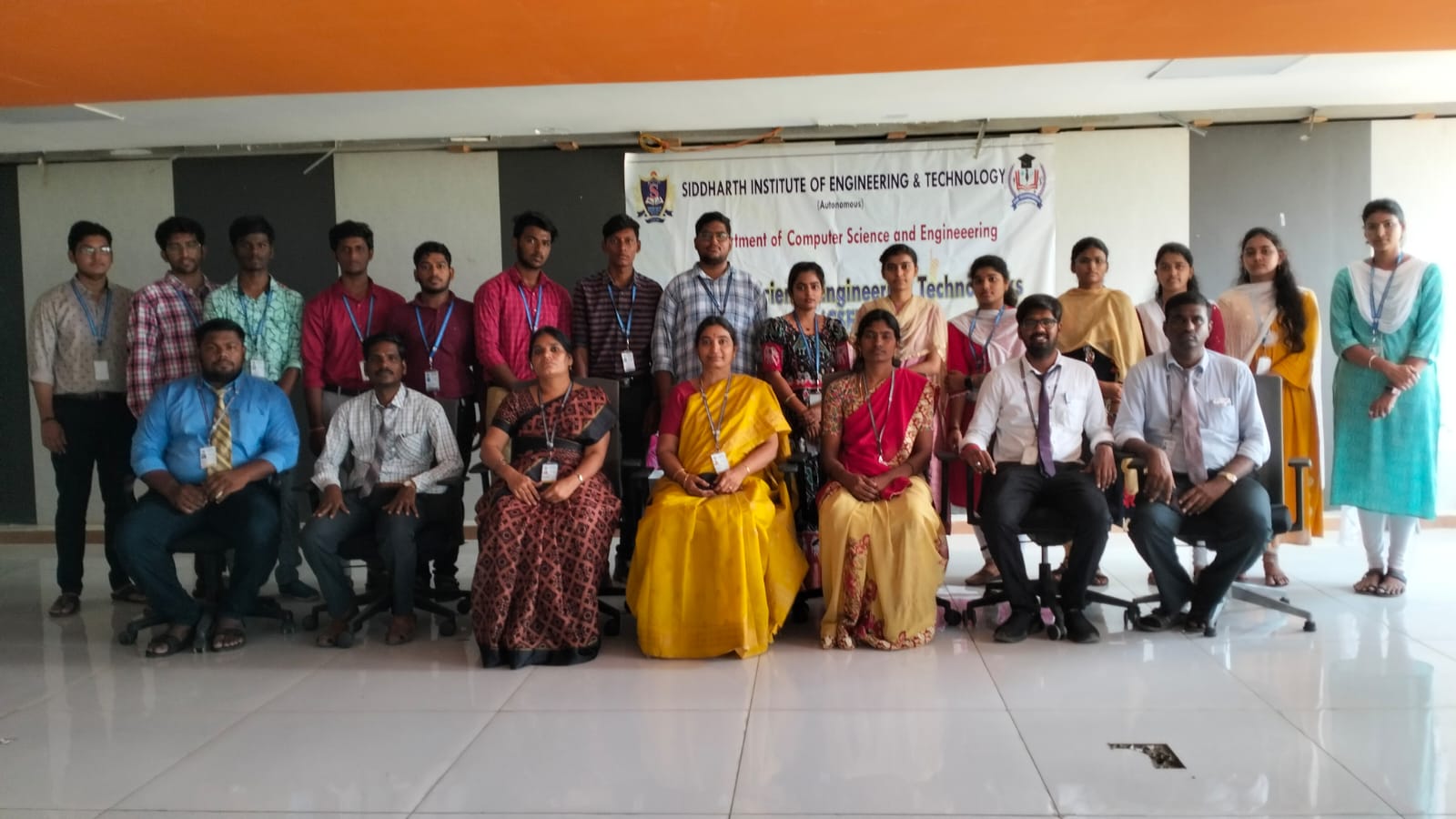
| S.No | Academic Year | Number of Events Conducted |
|---|---|---|
| 1 | 2024-25 | 17 |
| 2 | 2023-24 | 15 |
| 3 | 2022-23 | 14 |
| 4 | 2021-22 | 7 |
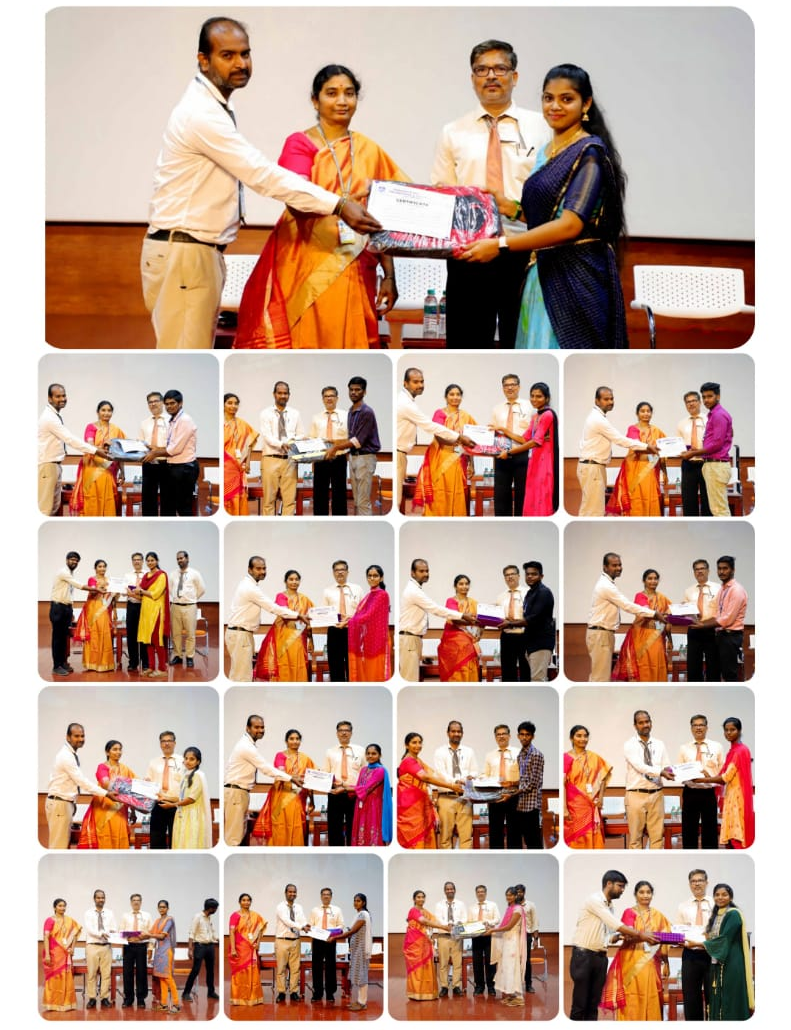
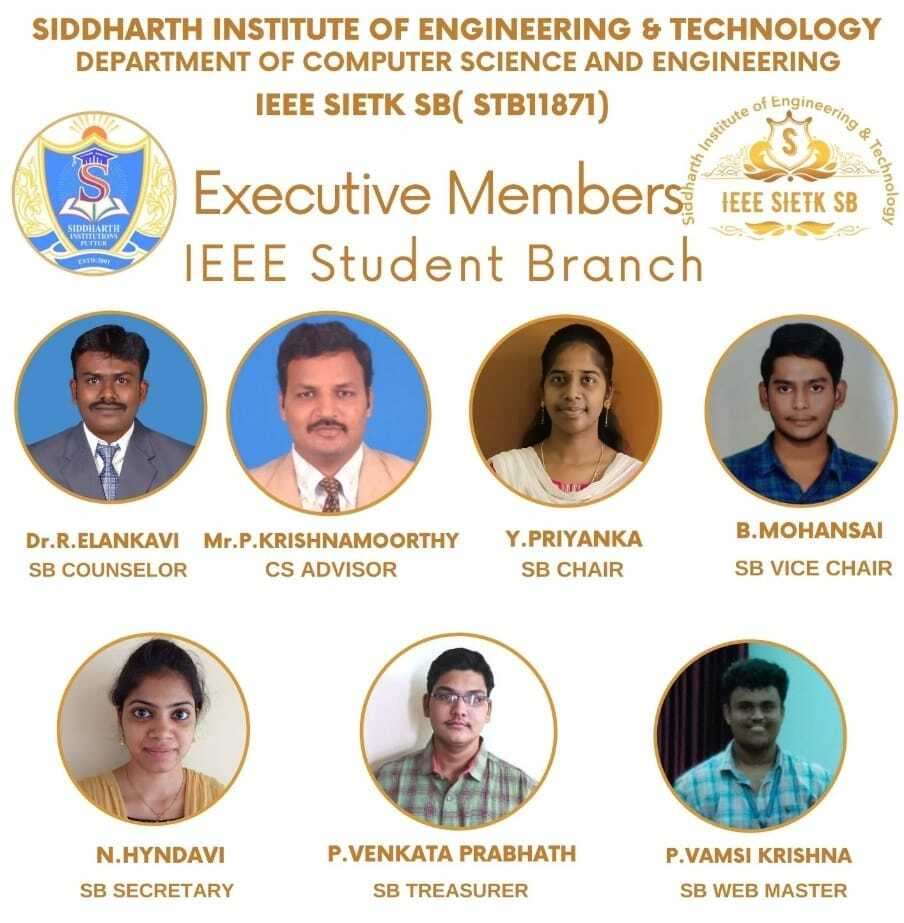
| CSE (Computer Science and Engineering) | |||
|---|---|---|---|
| S.NO | Room No | Class Name | Facilities |
| 1 | AUDI-102 | UG Class Room | LCD Multimedia Projector, Wi-Fi |
| 2 | AUDI-103 | UG Class Room | LCD Multimedia Projector, Wi-Fi |
| 3 | AUDI-104 | UG Class Room | LCD Multimedia Projector, Wi-Fi |
| 4 | AUDI-105 | UG Class Room | LCD Multimedia Projector, Wi-Fi |
| 5 | AUDI-106 | UG Class Room | LCD Multimedia Projector, Wi-Fi |
| 6 | AUDI-201 | UG Class Room | LCD Multimedia Projector, Wi-Fi |
| 7 | AUDI-202 | UG Class Room | LCD Multimedia Projector, Wi-Fi |
| 8 | AUDI-203 | UG Class Room | LCD Multimedia Projector, Wi-Fi |
| 9 | AUDI-204 | UG Class Room | LCD Multimedia Projector, Wi-Fi |
| 10 | AUDI-205 | UG Class Room | LCD Multimedia Projector, Wi-Fi |
| 11 | AUDI-206 | UG Class Room | LCD Multimedia Projector, Wi-Fi |
| 12 | AUDI-301 | UG Class Room | LCD Multimedia Projector, Wi-Fi |
| 13 | AUDI-302 | UG Class Room | LCD Multimedia Projector, Wi-Fi |
| 14 | AUDI-303 | UG Class Room | LCD Multimedia Projector, Wi-Fi |
| 15 | AUDI-304 | UG Class Room | LCD Multimedia Projector, Wi-Fi |
| 16 | AUDI-305 | UG Class Room | LCD Multimedia Projector, Wi-Fi |
| 17 | AUDI-306 | UG Class Room | LCD Multimedia Projector, Wi-Fi |
| 18 | E-301 | PG Class Room | LCD Multimedia Projector, Wi-Fi |
| 19 | E-302 | PG Class Room | LCD Multimedia Projector, Wi-Fi |
| 20 | E-401 | UG Class Room | LCD Multimedia Projector, Wi-Fi |
| 21 | E-402 | UG Class Room | LCD Multimedia Projector, Wi-Fi |
| No.of Class Rooms | 21 |
|---|---|
| No.of Labs | 10 (with 700 systems) |
| HOD Room | 01 |
| HOD Office Room | 01 |
| Staff Rooms | 04 |
| Department Library | 01 |
| CSE-Seminar Hall | 400 capacity (Fully Air Conditioned Seminar Hall, Equipped with ICT tools) |
| Group Discussion Room | 01 |
| Internet Speed | 1Gbps (24x7 Internet facility avilable & Wi-fi Campus) |
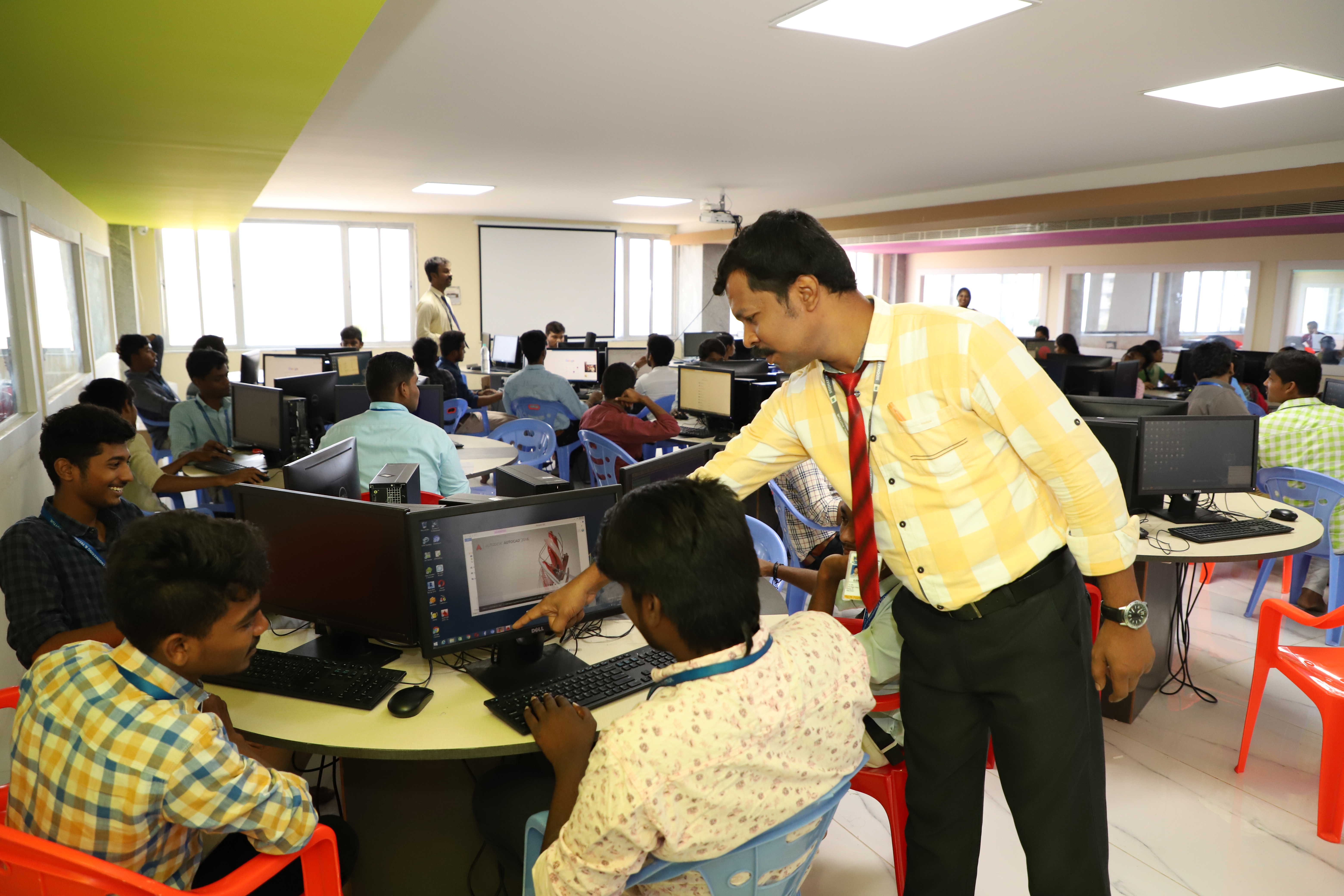
The objective of this lab are to make the student to learn programming languages such as C++&JAVA. Students get trained in IBM Rational Rose for Object Oriented Analysis and Design(OOAD). Students are also trained in Design Patterns with IBM Rational Rose to solve design problems of the software development.
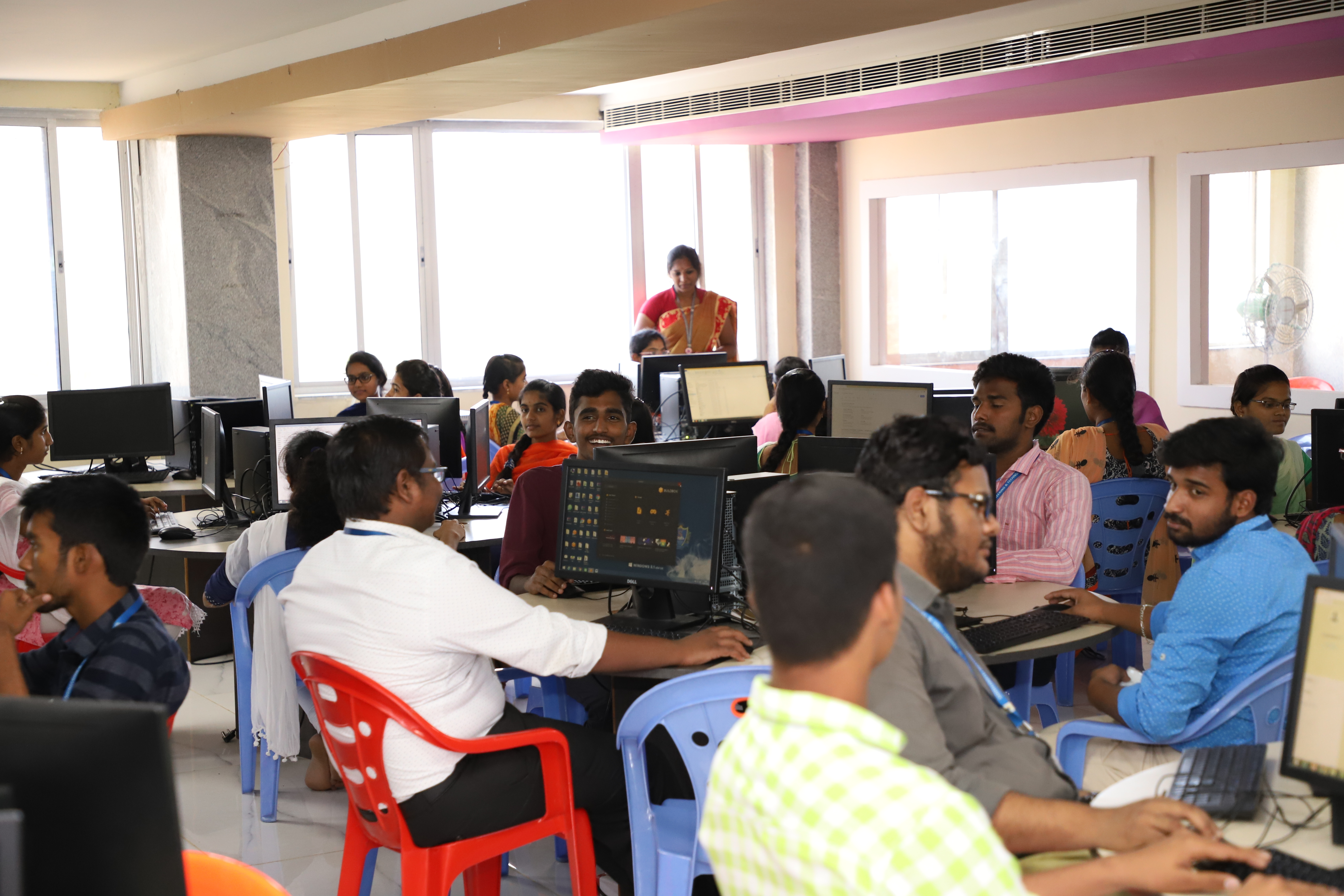
The objective of this lab is to train the students on PC Hardware, Internet and Productivity tools including Word, Excel, Power Point and Publisher. PC Hardware introduces the students to a personal computer and its basic peripherals, installation of system software like MS Windows, Linux and the required device drivers.
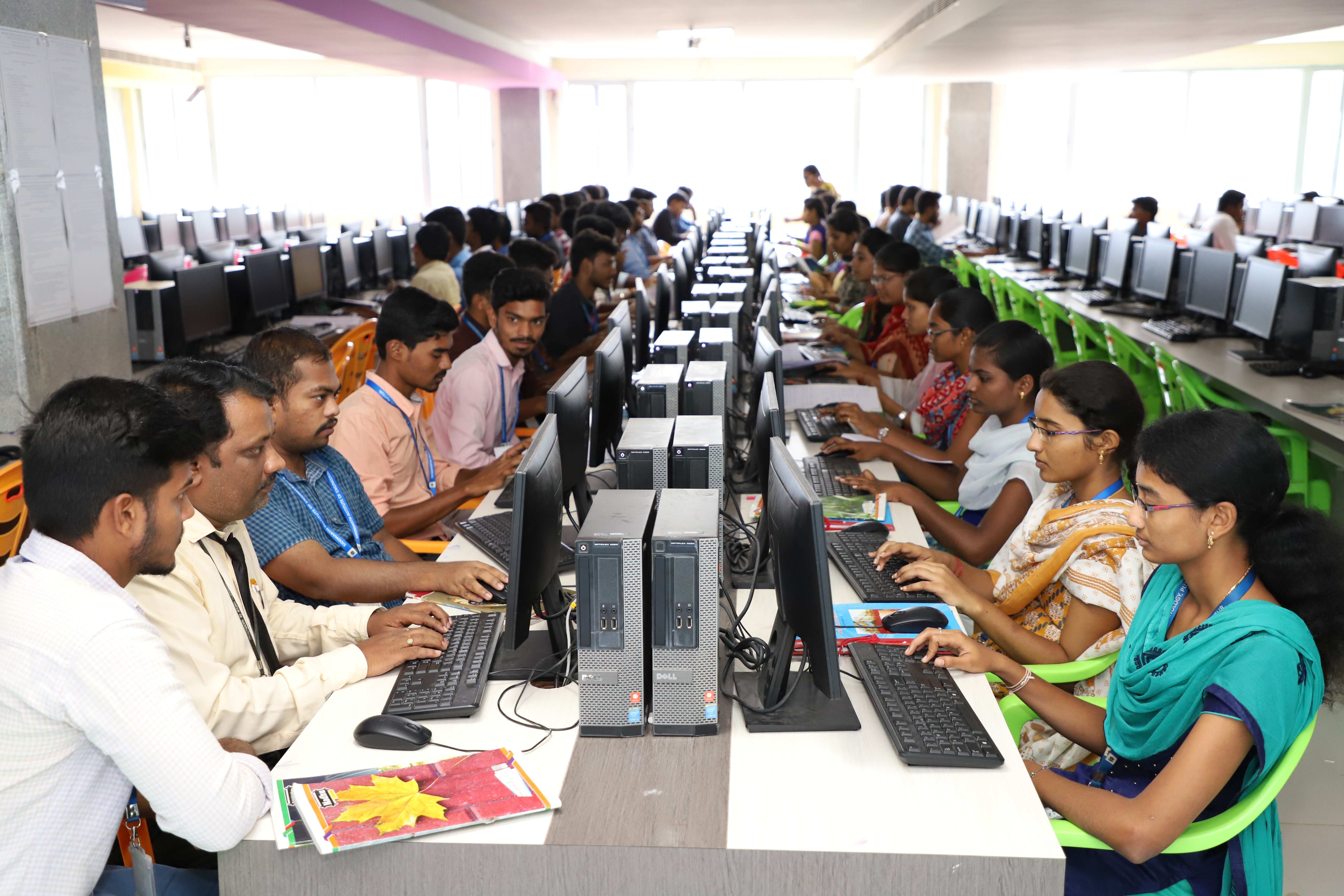
The objective of this lab is to provide training to students in implementations of Compiler Design & Operating system concepts. This lab also facilitates the students to get trained in Unix Operating system, Shell programming and Networking concepts.
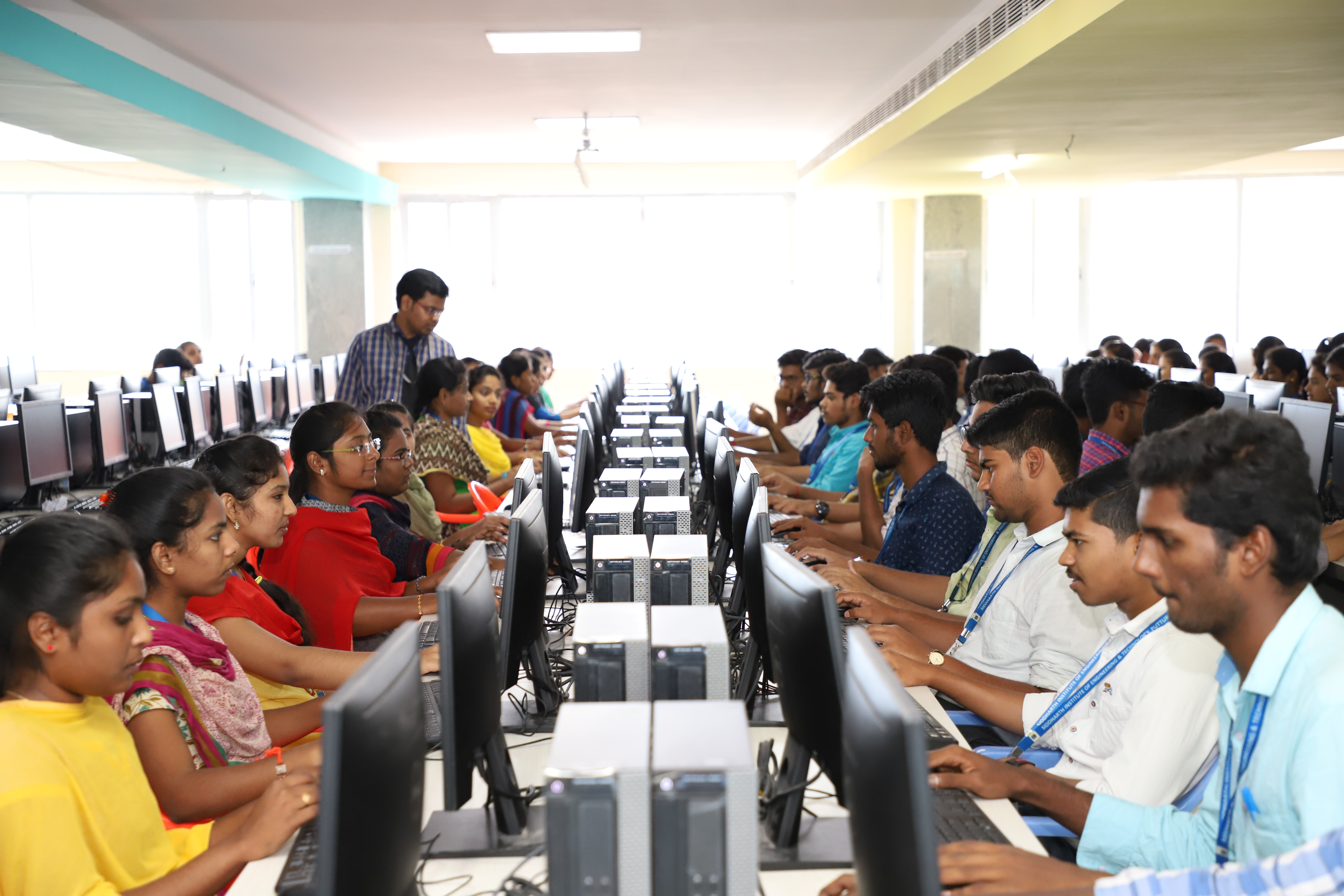
The objective of this lab is to provide a strong formal foundation in database concepts and practice with the technologies Oracle and MYSQL.
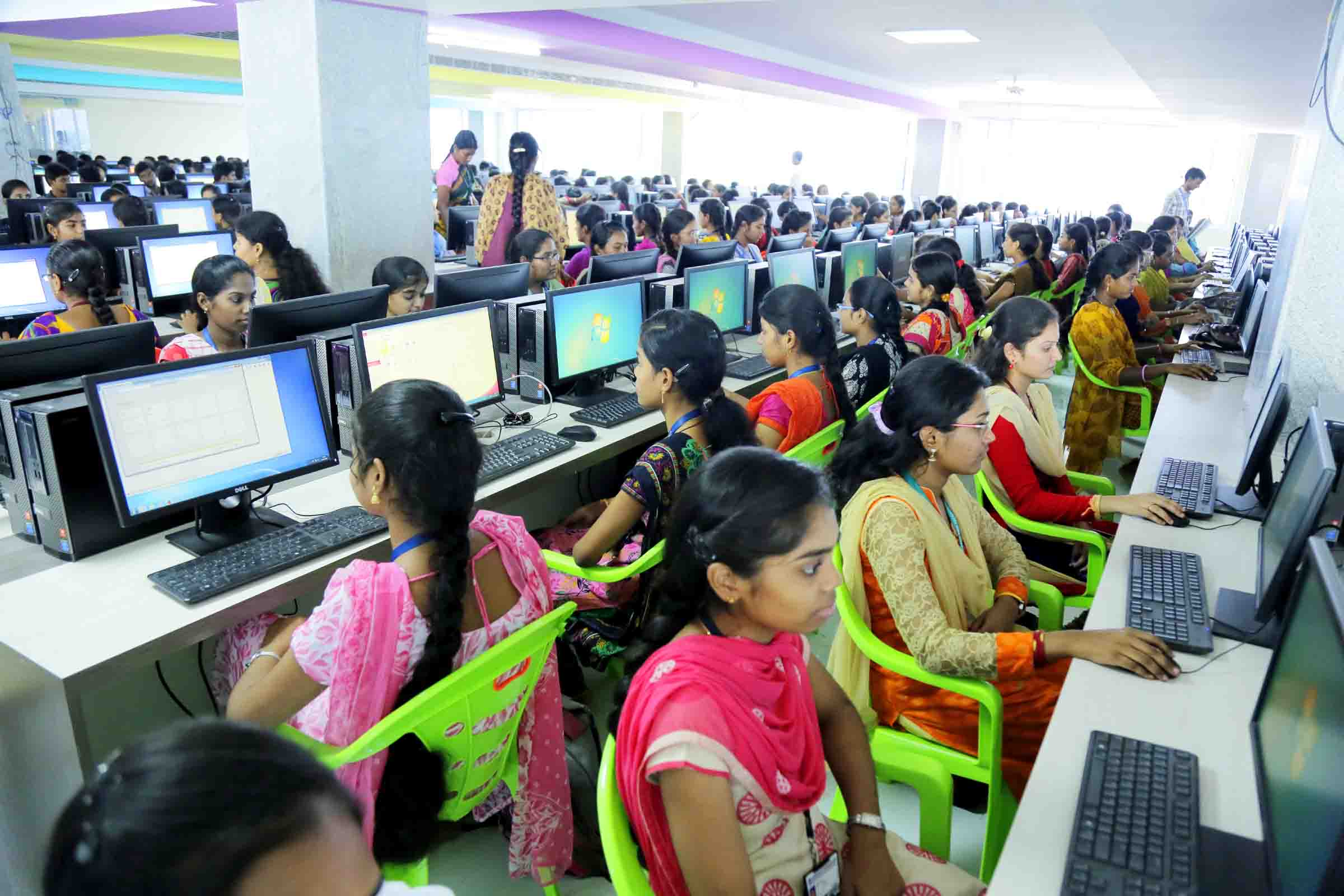
The objective of this lab is to train students with JSP, Java Script, and JDBC. In this lab, students can design and implement various Web Applications.
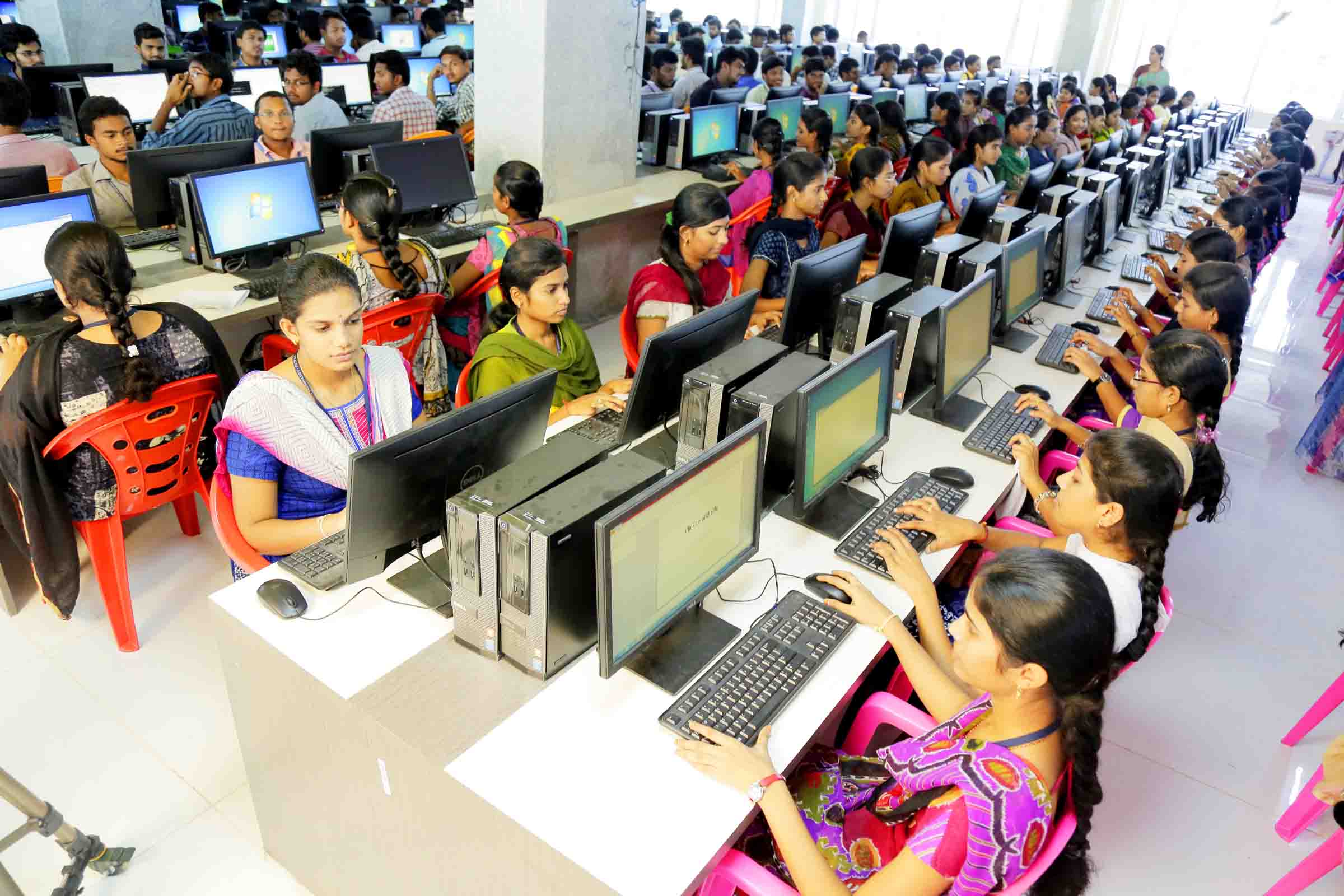
The Objective of this lab is to facilitate the students with J2ME and Android. In this lab, students can design and implement various Mobile Applications.
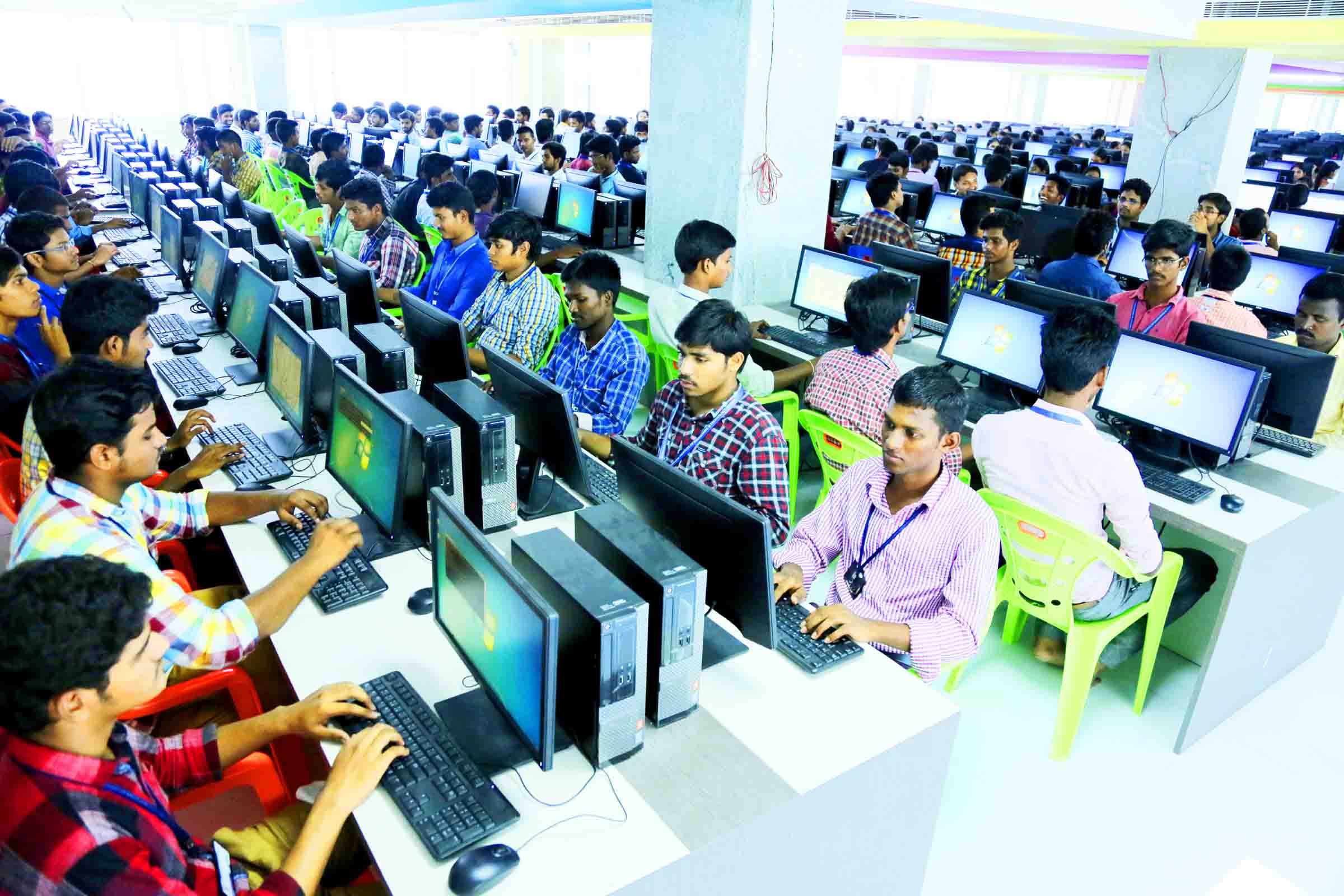
In this lab students will be trained on Data Structures and Advanced Data structures.










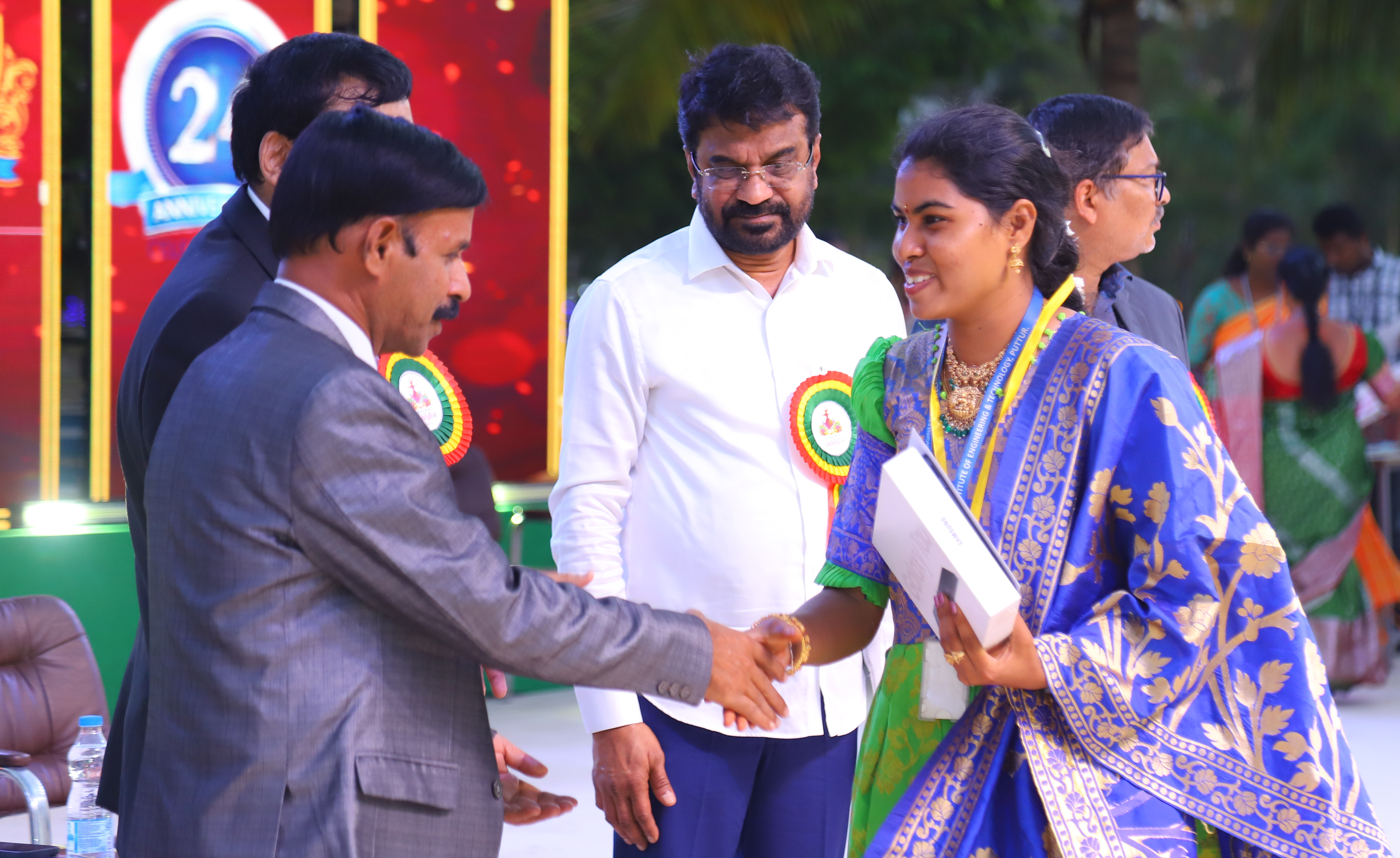
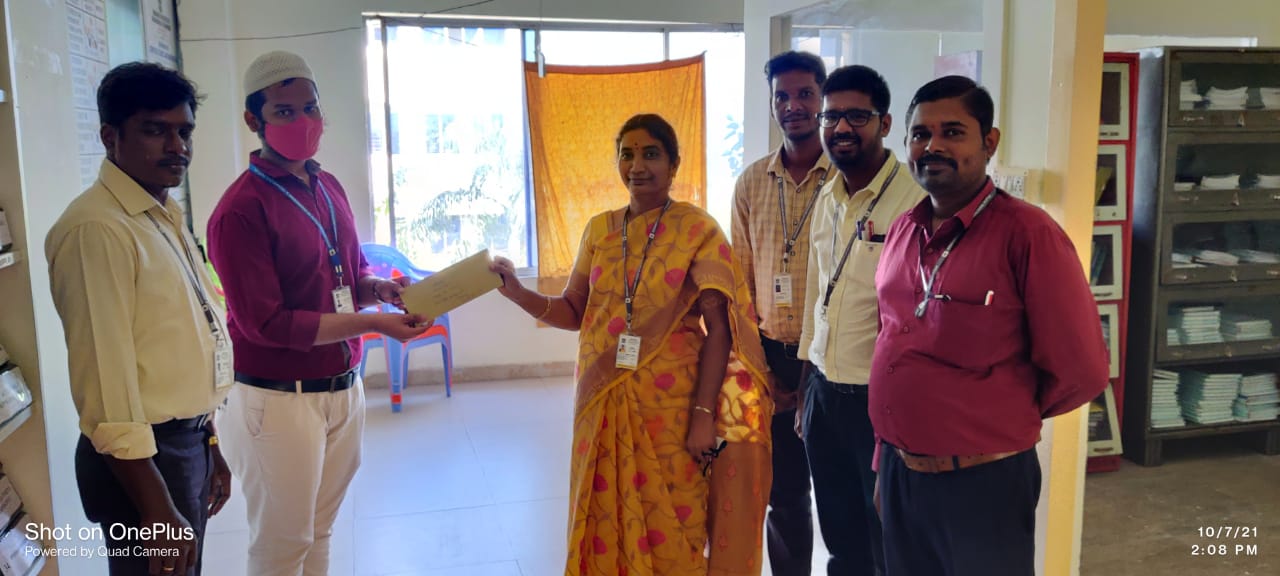
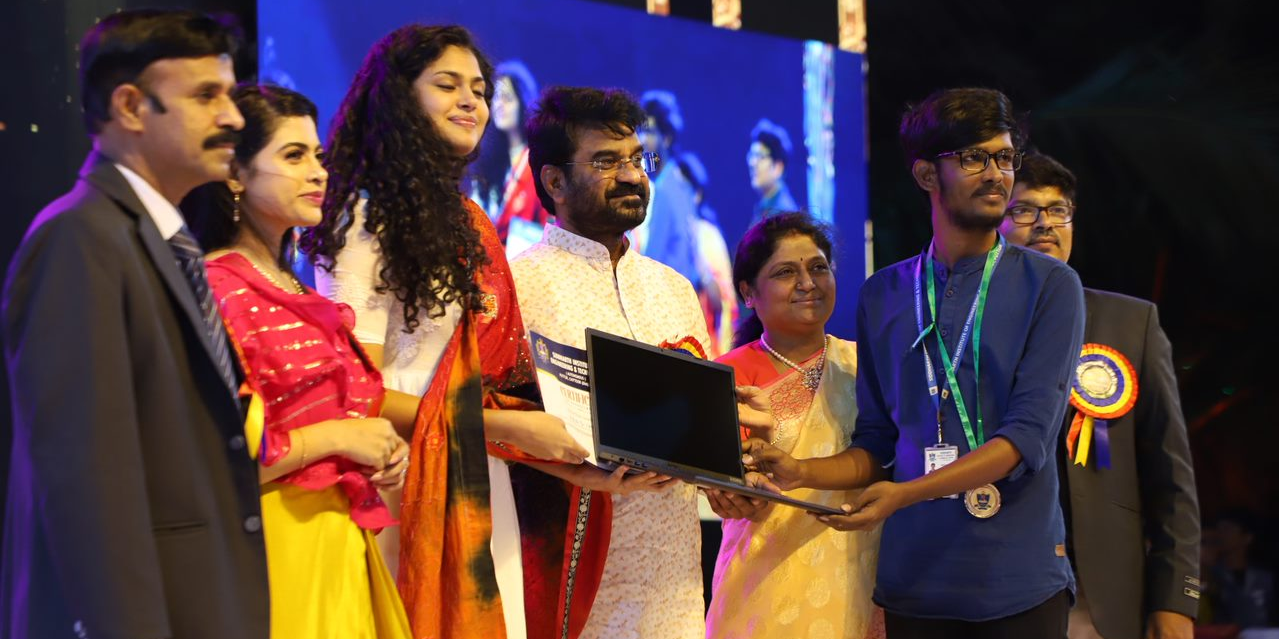









| Description of Publications | Academic Year | |||
| 2024-25 | 2023-24 | 2022-23 | ||
| Journal Publications (Scopus Indexed/WOS/UGC) | 48 | 11 | 01 | |
| Conference Proceedings | 34 | 12 | 0 | |
| Book/Book Chapter | 1 | 1 | 8 | |
| Patents | 1 | 5 | 4 | |
Organizing Technical Talks through various
Technical Associations.
Training needs analysis for
faculty development and enhanced productivity
Mentor-Mentee System for career
guidance
Faculty involvement in active
research.
Access to resources beyond
working hours using Computers labs
MoUs’ with industries for Student
Internships, Training, and Placements.
Organizing the interaction of
alumini.
| S.No | Name of The Organization |
|
|---|---|---|
| 1 | IIT-Tirupati Mentorship | Mentoring support through Faculty attended to the IIT Classes (Faculty Changed every Semester) |
| 2 | APSSDC | Conducting Skill Development Programs, provides Infrastructure, update course curriculum, Promote R&D and Innovation for existing industries, improvement in Technical Education Systems. |
| 3 | Qspider Campus Connect, Bangalore | Training & Placement |
| 4 | Virtusa Corporation, Bangalore and Chennai | SQL & PL/SQL training given by Virtusa team to our Faculty Members |